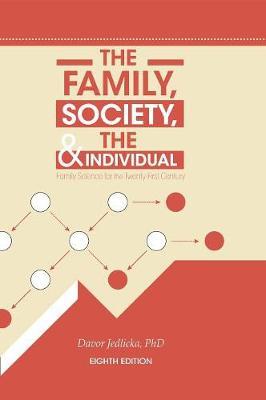Overview
American families are diverse because they derive from many historical and cultural influences. Only by studying these influences can we understand family strengths and weaknesses and forecast its future possibilities. The Family, Society, and the Individual encompasses the entirety of family systems unified by a central theory: Problems of the family often represent a clash between the needs of the individual and the requirements of the social order. It is only when these two forces are in balance that the individual, family and the society benefit the most. This theory is not just enunciated in an early chapter and then ignored. It pervades and integrates the entire book. This book also provides a universal definition of the family. A basic premise of any science, including family science, requires an abstract, universally applicable definition of the core unit of analysis. The definition of the family provided in this book incorporates the fact that every family is a social network. The first edition of The Family, Society, and the Individual was published by William M. Kephart in 1961. The theoretical theme of this book remains through the eighth edition. The teachers and students alike should find this combination of classical theory and modern methodology a liberating framework within which to tell the story of the family comprehensively, inclusively, unbiasely, and clearly.
Full Product Details
Author: Davor Jedlicka
Publisher: FriesenPress
Imprint: FriesenPress
Dimensions:
Width: 17.80cm
, Height: 2.10cm
, Length: 25.40cm
Weight: 0.812kg
ISBN: 9781460297704
ISBN 10: 1460297709
Pages: 344
Publication Date: 28 April 2017
Audience:
General/trade
,
General
Format: Hardback
Publisher's Status: Active
Availability: Available To Order

We have confirmation that this item is in stock with the supplier. It will be ordered in for you and dispatched immediately.
Author Information
The author, Davor Jedlicka, has a long history of research and teaching in the field of family science. It began in 1972 when, under the tutelage of Linton C. Freeman, he studied social networks and primary relationships. Dr. Jedlicka continued this research in a doctoral dissertation completed in 1975 at the University of Hawaii. His dissertation revealed a pattern of consistency in serial marital relationships. This finding led to the development of Affinographs, a theory and method for imaging and interpreting compound families dominating the American society today. The affinographs evolved further through Dr. Jedlicka's participation in a National Science Foundation project, and lectures as a Fulbright scholar in Europe. After decades of research at the University of Georgia and the University of Texas at Tyler, Dr. Jedlicka published a book entitled Affinographs: A Dynamic Method for Assessment of Individuals, Couples, Families, and Households. In 1988, he co-authored with Dr. William M. Kephart the sixth edition of The Family, Society, and the Individual. To expand his perspective on family science, Dr. Jedlicka earned a doctorate in family therapy from Texas Woman's University in 1999. His research since then spans family science applicable in areas from counseling and psychiatry to demography and sociology. This interdisciplinary framework expanded the foundation of the individual-societal perspective in family science.




